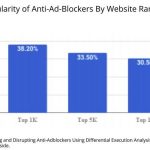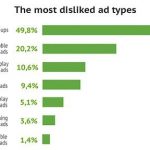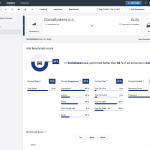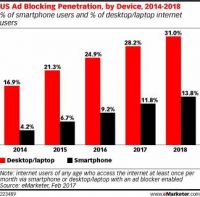EU Guidelines Warn Against Mobile Ad Blocking
By Jasper Jackson @JaspJackson, 31 August 2016
Mobile phone networks should not block adverts, says EU
Regulatory body Berec issues guidelines that could benefit publishers struggling with commercial effects of ad-blocking

Plans by mobile phone operators to block adverts for customers across their networks are in doubt after the EU said they breached net neutrality legislation.
Updated guidelines issued by the Body of European Regulators for Electronic Communications (Berec) this week state that advertising should not be blocked by networks, something that mobile operator Three has already trialled in the UK.
Net neutrality is the principle that internet service providers should treat all online content equally without blocking or slowing down specific websites on purpose, or allowing companies to pay for preferential treatment.
The EU ruling could eliminate a looming threat to publishers who are already struggling with the commercial consequences of growing numbers of people using software to block ads on their PCs or smartphones.
Berec’s new guidelines say that providers “should not block, slow down, alter, restrict, interfere with, degrade or discriminate advertising … unless the conditions of the exceptions … are met in a specific case.”
It is the responsibility of UK regulator Ofcom to implement and interpret the guidelines. However, the UK government has previously indicated it is sympathetic to publisher complaints about ad blocking. In March, the then culture secretary John Whittingdale described ad blocking as a “modern-day protection racket”.
Three would not comment on the new guidelines but has argued that it does not fall foul of net neutrality rules because it offers consumers a choice about whether or not to block advertising.
However, a response to consultation on the guidelines issued by Berec rules out that argument. It says: “Berec does not consider that end-user consent enables ISPs to engage in such practices at the network level.”
The intervention by the European commission on behalf of publishers comes just days after reports of proposals to allow news organisations to charge search engines such as Google for using snippets from articles in search results.
Germany’s Axel Springer, one of Europe’s most powerful media companies and publisher of the continent’s largest tabloid, Bild, has been vocal in pushing for clampdowns on ad-blocking and greater regulation of the way Google and others use its content online.
Three has not revealed the results of its 24-hour trial, and has not said when or if it plans to roll out an ad-blocking product for its customers.
The company, which also operates in Italy, is using technology provided by Israeli company Shine, which already provides blocking across the Digicell network in Jamaica owned by Irish tycoon Denis O’Brien.
One of Shine’s investors is Li Ka-shing, boss of Three parent company CK Hutchison and also a major investor in Facebook.
Facebook itself is engaged in a battle with ad blockers, and earlier this month introduced technology to combat them. However, it has been suggested that the move – which has already been partially countered by ad-blocking software companies – could fall foul of EU privacy legislation. These EU rules require websites to ask users for permission to have cookies, which store data about website visitors, installed on their machines.
The Guardian, Thursday, September 1, 2016
(20)












